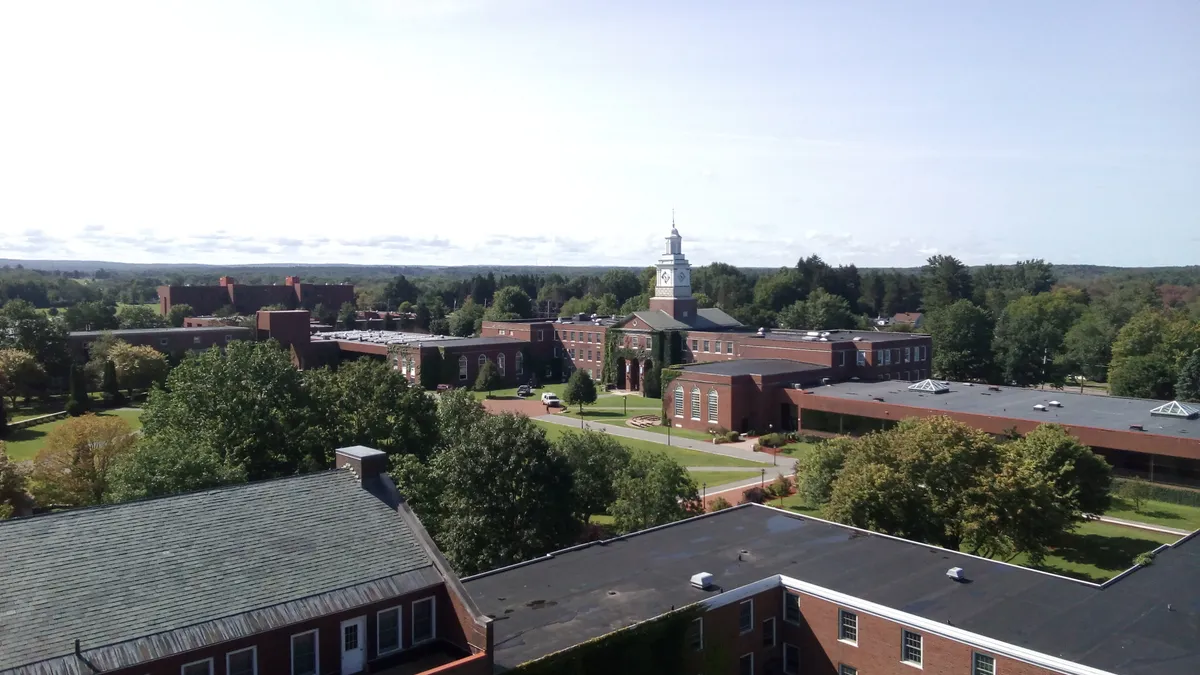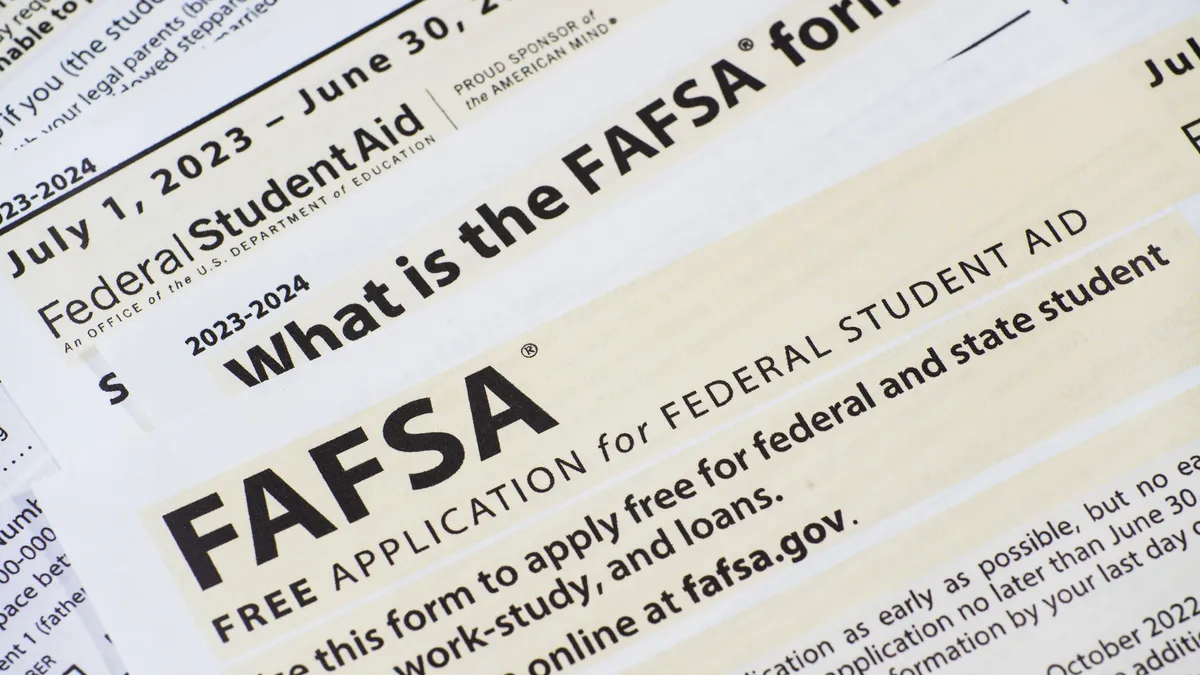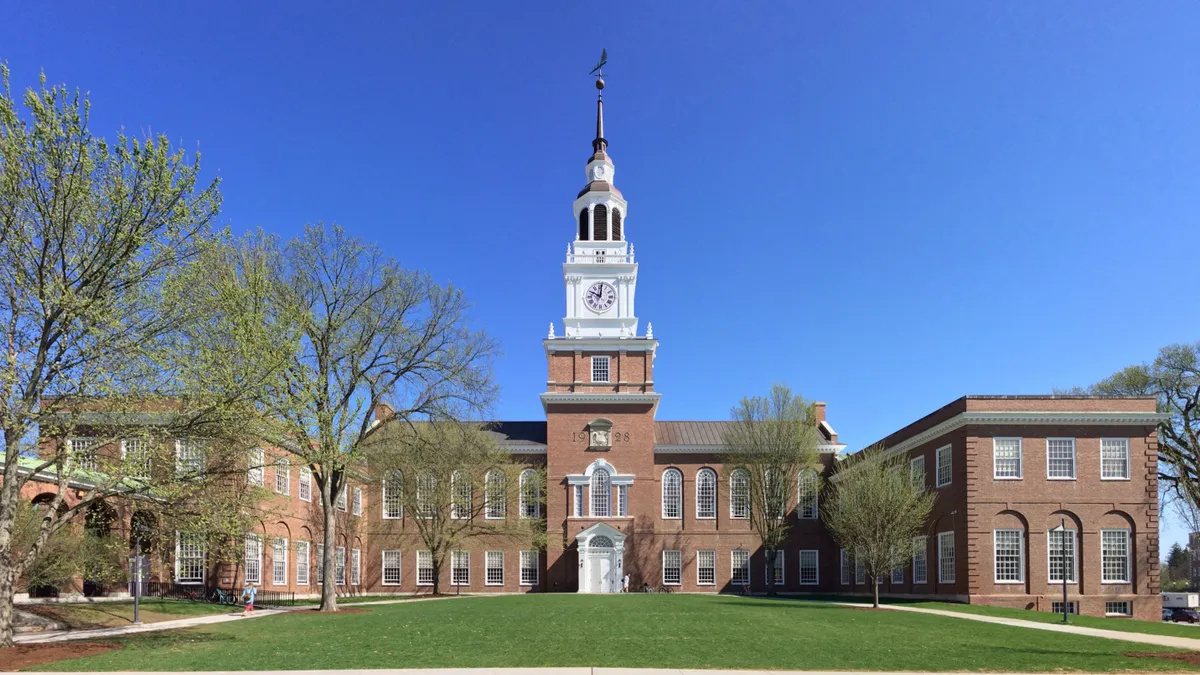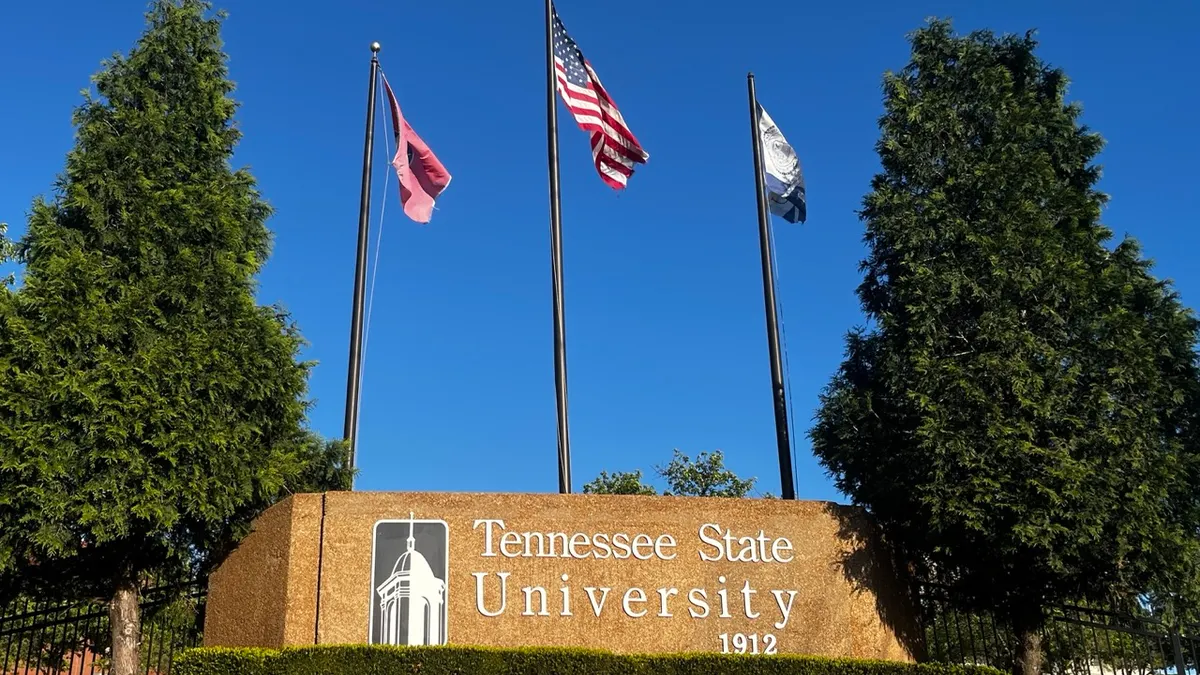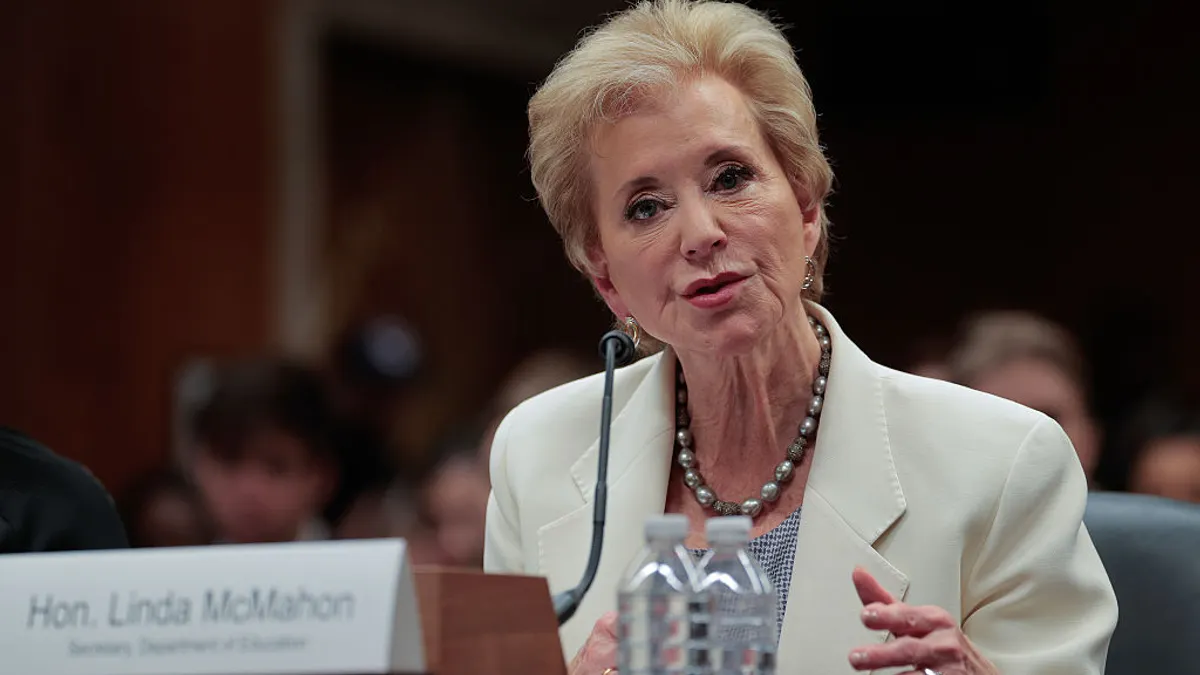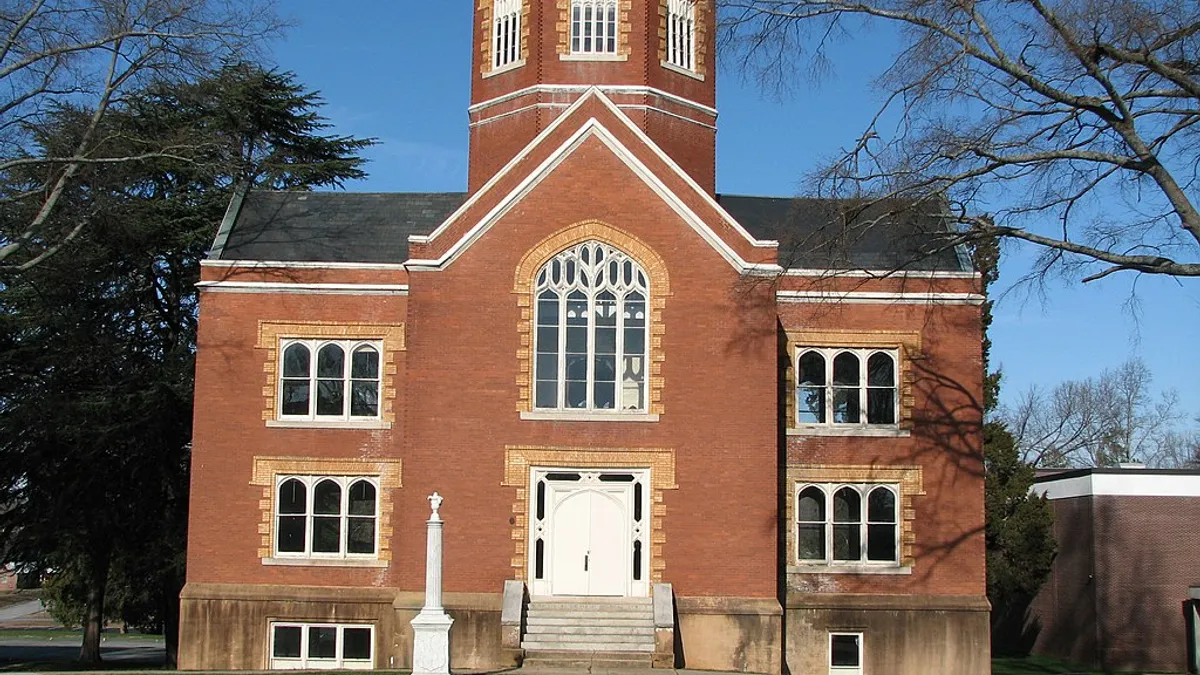The State University of New York at Potsdam plans to phase out four academic programs as it stares down a $9 million budget hole.
The public institution intends to discontinue bachelor’s programs in computer science education, geographic information science, and speech communications, as well as a graduate-level certificate in college teaching.
The university, part of the 363,000-student SUNY system, has not shared this plan publicly. However, local news reports, and a leaked communication from the institution’s faculty senate chair, confirm the cuts.
Suzanne Smith, the university’s president, is working on an effort to put the university on the path to financial stability while implementing “forward-thinking and proactive programs,” a university spokesperson said via email.
“The President will be formally announcing that plan to the entire campus community in the coming weeks, and is confident that it will secure SUNY Potsdam’s future for years to come,” the spokesperson said.
While the system's two flagships, Stony Brook University and the University of Buffalo, have seen steady enrollment, less prominent institutions like SUNY Potsdam have taken a hit.
SUNY Potsdam may serve as a bellwether for problems at those less visible institutions. It has battled decade-long headcount declines, having more than 4,000 students in fall 2013, which plummeted to about 2,400 in fall 2022, according to federal data.
Other public colleges are also trimming degree offerings in a harsh and competitive higher ed landscape still marred by the pandemic’s economic effects. West Virginia University this month said it’s considering eliminating almost three dozen programs, while Dickinson State University in North Dakota recently announced it would drop a to-be-determined number of tenured faculty.
Both institutions attributed the cuts to budget shortfalls.
What’s going on at SUNY Potsdam?
SUNY Potsdam’s cuts came to light this month when a letter from the faculty senate chair, Greg Gardner, leaked to local press.
Gardner said in an email Wednesday that he did not provide the letter to news media and declined further comment.
His undated missive states that the university “is in deep financial difficulty” that the institution previously attempted to fix by scaling back nonpersonnel expenses and leaving open faculty positions unfilled.
The system had historically covered the university’s budget deficit through loans, grants and, most frequently, financial reserves from other campuses, Gardner wrote. But with other SUNY institutions’ enrollment in free fall, the system ordered the university to reduce spending and eliminate the deficit as soon as possible.
That meant faculty needed to “brace for impact,” Gardner wrote.
“We must prepare ourselves for program and headcount cuts of an order beyond anything we have seen on the campus in living memory,” he wrote.
Gardner suggested “more painful” campuswide cuts — beyond the four programs — are coming. And the SUNY Potsdam administration is in talks with at least two academic departments about “possible programmatic cuts and reorganizations,” he wrote.
A SUNY system spokesperson did not provide comment by publication time Friday.
More financial troubles?
SUNY Potsdam has already considered other austerity moves this year.
It mulled not renewing five faculty members’ contracts in its theater and dance departments for fall 2024, leading to a petition to preserve those jobs.
And in 2022, members of SUNY Potsdam’s philosophy department went public that the major would be terminated unless faculty could demonstrate they could “consistently” maintain at least 10 students in the program. They would also need to redesign the curriculum in time for fall 2023, the philosophy faculty said.
The university’s accreditor, the Middle States Commission on Higher Education, had concerns about the university’s finances last year, too.
In June 2022, Middle States informed the university’s leadership its accreditation could be in jeopardy because SUNY Potsdam couldn’t show it was complying with two of the accreditor’s standards, related to institutional planning and finances and assessing student achievement.
In June, Middle States affirmed the university was once again following the two standards after the university outlined in a report how it would meet the accreditor’s benchmarks. However, the accreditor asked for SUNY Potsdam to supply another report updating it on the university’s operations, due January 2024.
A Middle States spokesperson declined to provide the report it reviewed in June. A SUNY Potsdam spokesperson did not provide a copy of that report, instead directing Higher Ed Dive to public webpages detailing the university’s accreditation status.
SUNY system’s broader problems
SUNY Potsdam’s troubles reflect widespread woes for the SUNY system, one of the largest public higher education systems in the U.S. The system bled enrollment over the past decade, a trend the pandemic exacerbated.
New York Gov. Kathy Hochul, a Democrat, has attempted to lift SUNY’s profile. In 2022, she set highly ambitious enrollment targets of 500,000 students — which it has not yet met.
Many colleges within the system have seen their enrollments spiral. The president of the union representing broad numbers of SUNY faculty told Higher Ed Dive earlier this year that at least 19 of the system’s 64 campuses had severe financial problems.
Hochul’s fiscal 2024 budget did not earmark money for a distressed campus fund, for which the union had lobbied. But the state did infuse the system with more public funding, giving it $163 million more than the previous budget cycle. It also provided about $1.6 billion in capital money.
“This year’s budget is a vote of confidence in the power and potential of public higher education, and SUNY is committed to ensuring that these historic investments translate into greater opportunity and success across our 64 campuses,” SUNY leaders said in a statement in May.



